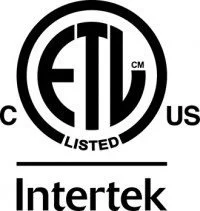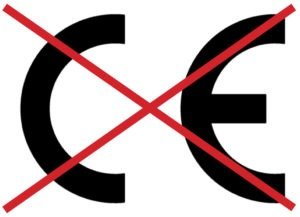Beware: Charging is a serious business
Avoid off-brand products
Suzanne Guinn has purchased her fair share of faulty products from the internet. Recently, a curling iron exploded in her hand when she attempted to plug it into a wall socket. Not long before that, her son's portable battery bank caught fire in the middle of the night.
"Products need to be tested, and a lot of what you buy off the internet has not been," said Guinn, Director of Marketing and Communications at Clipper Creek, a top Electric Vehicle Supply Equipment (EVSE) manufacturer. "That goes for charging stations just like anything else. Stations offered on Amazon and other marketplaces haven't always been tested, and some display a fake certification or one that doesn't pertain to our country and standards."
Guinn is quick to point out that most charging cords are generally very safe and durable."They can be installed outdoors where they get wet and are exposed to dust and high temperatures,” she explained. “They stand up to being dropped, and you can charge in a snowstorm—safely.”
“The charging cords you buy from a legitimate brand are safe,” she continued. “If it’s not a reputable brand, you just don't know what you're getting."
Pay the extra $100 for the right brand
Guinn recommends that potential buyers limit their charging station product search to recognized brands, such as ClipperCreek, ChargePoint, JuiceBox, etc. even if these brands are slightly more expensive. Doing so will ensure thorough and rigorous testing has been done.
"With standardized testing in independent testing labs, the charging station is put through extraordinary trials. For instance, it's dropped several times in a row, it's blasted with water, it's exposed to high heat—and then tested for electrical safety and reliability," she said. “At ClipperCreek, we put them through rigorous assessment before we even seek certification. You wouldn't believe some of the tests our engineers do."
With a Level 2 charging station, "it's not like going to Sears and buying a small appliance," she continued. "First of all, Sears isn't going to sell you a toaster that isn't safety tested and certified. And this is a 240v piece of high-power energy transfer equipment. People are buying these off Amazon, no certifications, saving $100, but there's no ground! All you have to do is look at the Amazon reviews for some of these stations and you'll find some pretty scary stuff. I know it can be confusing—I've fallen for it myself."
Guinn added that she and her colleagues at ClipperCreek are concerned about this issue. "We want people to be safe," she said, "and our mission is to promote electric vehicles (EVs). The last thing our industry needs is someone getting hurt."
The Intertek test verification label
EVSE manufacturers invest heavily in third-party safety testing. The laboratory safety engineers test the products against thousands of applicable electrical codes and safety standards. Intertek ETL and Underwriter’s Laboratory (UL) are the most common Nationally Recognized Testing Laboratories (NRTLs) in North America that can test and certify charging stations.
UL testing verification level
Once a product is certified, the NRTL randomly inspects the company facilities four times per year, ensuring that the products are constructed in the same manner with the same materials as the test samples. Changes cannot be made to the products without repeating the certification process.
How to know your product is appropriately certified:
· Ensure the official mark from a Nationally Recognized Testing Laboratory (ETL or UL) is ON the product itself.
· Do not rely on ETL or UL marks on a website or even in a manual or product box. ETL, UL, and other NRTL symbols on individual parts of a product do not indicate the product itself is certified.
· Be aware that a 'CE' is a self-certifying mark in North America and Mexico. It is self-declared, not verified by a third-party and concerns conformity to European standards, which are different than North American standards. It should not be trusted in the US, Canada, and Mexico. (A CE mark in addition to the UL or ETL mark is acceptable.)
· Be cautious of advertising statements such as "built to UL/ETL/NRTL standards," or "built with UL/ETL/NRTL listed components." Typically, products that have been NRTL certified will indicate clearly in their advertising materials and specifications with specific terms like "UL/ETL/ NRTL listed," or "Certifications: UL/ETL/NRTL" and the certification mark will be on the product itself.
· Rely on Underwriters Laboratory and Intertek for online resources that allow the public and the building inspectors to verify the marks applied to products are not counterfeit. UL and Intertek maintain a database of products that are certified.
· Don't hesitate to call a manufacturer and ask for their UL or ETL information. If you cannot find a phone number, or if your call goes unanswered, that may indicate a problem.
· Do not purchase a station with a NEMA 10-30 or 10-50 plug. These products lack an earth-ground connection.





